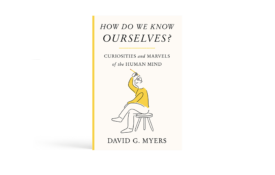-

Deprivation May Explain the Link Between Early Adversity and Developmental Outcomes in Adolescence
Early deprivation experiences, such as parental neglect, appear to be more closely associated with cognitive and emotional functioning in adolescence than early threat experiences, such as exposure to abuse.
-
Content Moderators Pay a Psychological Toll to Keep Social Media Clean. We Should Be Helping Them
Content moderators are the unsung heroes of the internet. They work in a growing field which upholds the social media infrastructure of today. But keeping us safer, by constantly seeing and filtering the worst content online, takes its toll. Can people really cope with this constant barrage of horror? One of the main handbooks for psychologists, the DSM-5, includes ‘indirect exposure to aversive details’ in the category of post-traumatic stress disorder. In extreme circumstances this can result in what is often called ‘secondary trauma’. Secondary trauma can happen when people, such as first responders, deal with victims in distress.
-
Anxiety Does Not Cause Bad Results in Exams
Exams are nerve-racking, especially for those already of an anxious disposition. The silence of the hall; the ticking of the clock; the beady eye of the invigilator; the smug expression of the person sitting at the neighbouring desk who has finished 15 minutes early. It therefore seems hardly surprising that those who worry about taking tests do systematically worse than those who do not. What is, perhaps, surprising, according to research published recently in Psychological Science by Maria Theobald at the Leibniz Institute for Research and Information in Education and her colleagues, is that it is not the pressure of the exam hall which causes the problem. It is the pressure of revision.
-
Can’t Sleep? Try Sticking Your Head in the Freezer.
A good night’s sleep can make us more empathetic, more creative, better parents and better partners, according to Aric Prather, a psychologist at the University of California, San Francisco who treats insomnia and is the author of the new book “The Sleep Prescription.” Sleep can help us manage stress; it can make us competent and capable and better able to take on the day. But Dr. Prather says we too often view sleep as an afterthought — until we find ourselves frozen in the middle of the night, our thoughts racing, fumbling for rest or relief. Some people might reach for a supplement or sleep aid.
-

How Do We Know Ourselves? Part 1 of 3 With David Myers
Social psychologist David Myers joined APS’s Ludmila Nunes to speak about his career, his new book, and how we really do know ourselves.
-

New Content From Perspectives on Psychological Science
A sample of articles on stress responses, Qualia, sex/gender differences in verbal fluency, seeing racism as a zero-sum game, why (and when) beliefs change, and much more.

